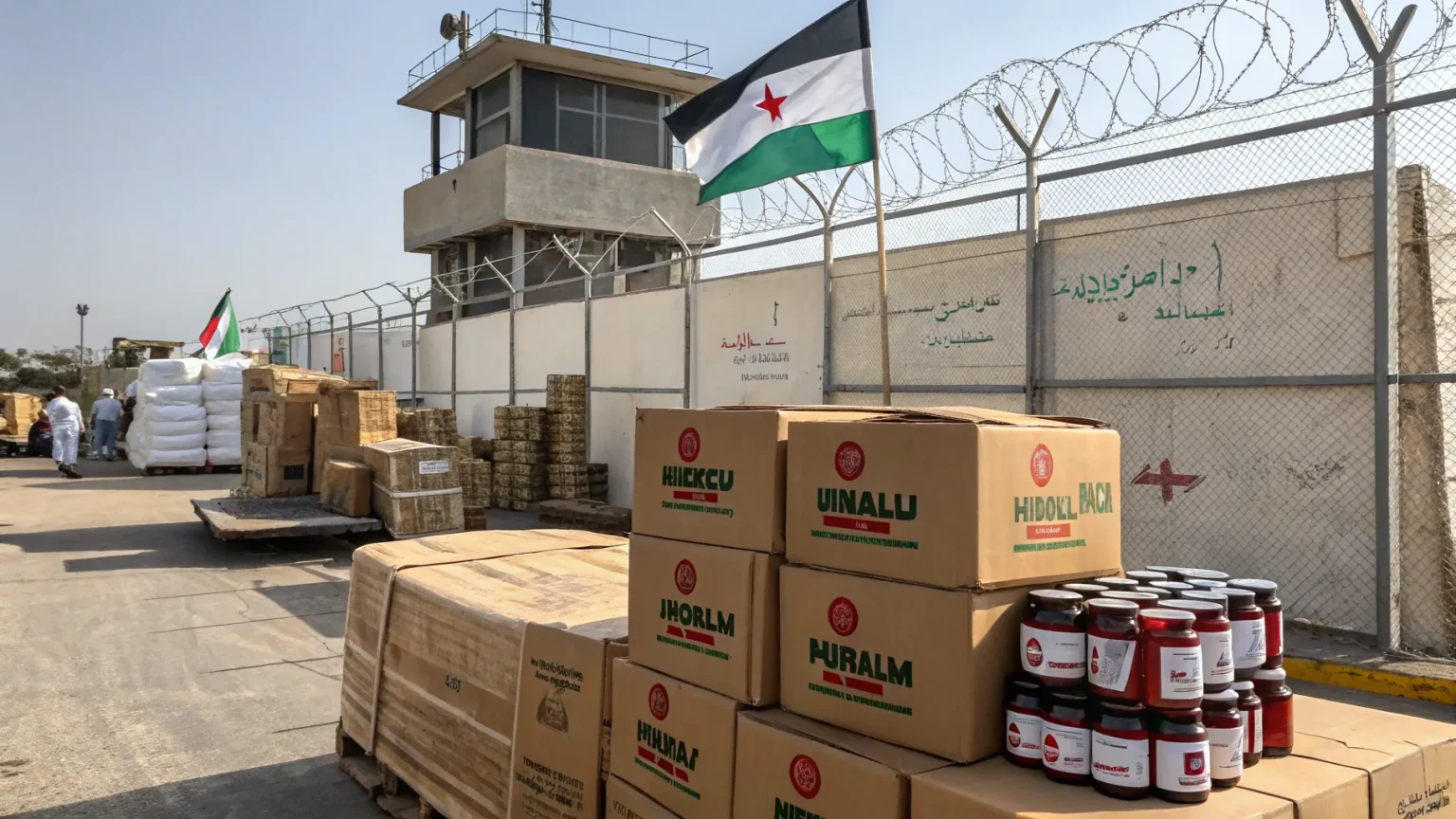Basic humanitarian supplies, including insulin needles, sleeping bags, and Nutella, are being rejected by Israeli authorities when aid organizations attempt to deliver them to Gaza, according to Arwa Damon, founder of the International Network for Aid, Relief and Assistance (INARA).
These rejections highlight the growing humanitarian crisis in Gaza, where essential supplies remain scarce despite international efforts to provide relief. Damon’s experience offers insight into the complex challenges facing aid organizations working in the region.
INARA, like many humanitarian nonprofits operating in conflict zones, faces significant logistical hurdles and bureaucratic obstacles that limit its ability to deliver assistance to those in need. The situation in Gaza has become particularly dire as the conflict continues with no resolution in sight.
The Humanitarian Aid Bottleneck
According to Damon, the rejection of seemingly innocuous items like food spreads and medical supplies points to a broader pattern of restrictions on humanitarian aid entering Gaza. These restrictions have created a bottleneck that prevents adequate assistance from reaching the civilian population.
Aid organizations must navigate a complex approval process, with Israeli authorities maintaining strict control over what items can enter Gaza. This process often results in delays or outright rejections of shipments containing critical supplies.
We’ve tried to send basic necessities that anyone would need for survival,” Damon explained. The rejection of these items makes our work incredibly difficult and directly impacts the people who desperately need assistance.
The situation has raised concerns among international humanitarian organizations about their ability to fulfill their missions in Gaza. Many are calling for changes to the current system to allow more aid to reach civilians affected by the ongoing conflict.
Economic Challenges of Humanitarian Work
Beyond the logistical barriers, Damon highlighted the economic challenges of running a humanitarian nonprofit in such a complex environment. These include:
- Increased costs due to shipping delays and rejected shipments
- The need for alternative supply routes, often at premium prices
- Additional administrative burdens to comply with changing regulations
- Fundraising difficulties as the crisis extends with no end in sight
These economic pressures compound the already difficult task of providing humanitarian assistance in conflict zones. For smaller organizations like INARA, these challenges can be particularly daunting as they operate with limited resources compared to larger international aid groups.
Despite these obstacles, Damon’s organization continues its efforts to assist, adapting its approach to work within the constraints of the current situation.
International Response and Regional Dynamics
The humanitarian crisis in Gaza exists within a complex web of regional politics and international relations. Egypt’s role as a neighboring country has been scrutinized, with questions about its willingness to accept refugees from Gaza.
Meanwhile, the United States maintains significant financial support for Israel, including military aid, which has prompted debates about American influence over the humanitarian situation.
The economics of humanitarian work isn’t just about money—it’s about navigating political realities that directly impact our ability to help people in need,” Damon noted.
International organizations continue to call for increased humanitarian access to Gaza, arguing that the current restrictions violate international humanitarian law, which requires parties to a conflict to allow and facilitate rapid and unimpeded passage of humanitarian relief.
As the crisis continues, aid workers like Damon remain caught between their mission to provide assistance and the practical limitations imposed by the conflict. Their experiences offer a window into the human cost of the ongoing situation and the challenges of delivering aid in one of the world’s most complex humanitarian emergencies.
For civilians in Gaza, the rejection of essential supplies represents more than a policy decision—it translates to real hardship as they struggle to meet basic needs amid conflict and destruction. Without significant changes to the current approach to humanitarian access, aid organizations warn that the situation will likely worsen in the coming months.







